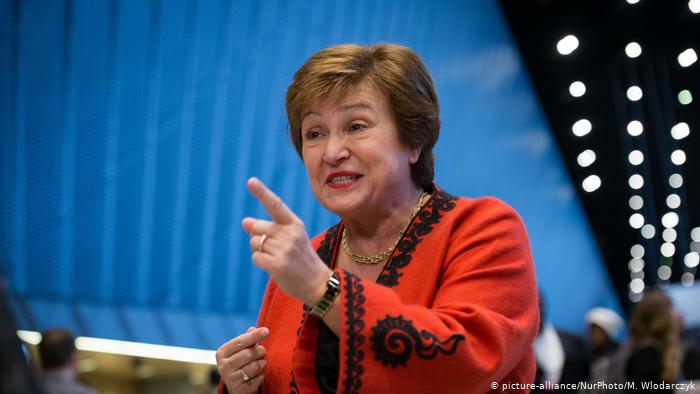The International Monetary Fund has expressed worry about the high exposure of banks to government securities that is Treasury bills and bonds, saying it is increasing the balance sheet risks of the banks.
In its detail Article IV Consultation on Ghana, the Fund said the situation is also crowding out private sector lending.
“Government lending supported the banking sector through the pandemic, but is crowding out private-sector credit and increasing balance sheet risks”.
This is also coming at a time when Fitch Ratings reviewed the outlook of two Nigerian banks operating in Ghana, from stable to negative because they are highly exposed to Government of Ghana's securities, though it assigned its ‘B’ ratings.
The IMF further said that the share of government lending to total bank assets reached 44.7% in February 2021, from 36.3% a year before, driven by the large budget deficit, and the pandemic-induced credit risks and slowdown in credit demand.
“This growing sovereign exposure, a trend that started even before the pandemic, props up bank profitability but undermines private-sector credit growth. Moreover, the exposure could create bank balance sheet losses if government yields were to increase, amplifying the impact of potential debt rollover difficulties or other exogenous shocks on credit growth and economic activity”, it pointed out.
Meanwhile, the Bank of Ghana is pushing ahead with regulatory reform.
According to the IMF, the Central Bank is drafting Pillar II regulations and completing accompanying risk management guidelines.
It is also conducting a review of the Specialised Deposits-Taking Institutions subsector with technical support from the World Bank, to identify gaps in the legal, regulatory, and supervisory framework and the practices that led to systemic distress and resolution of over 400 failed SDIs in 2019.
The Bank of Ghana has also recently revised the Emergency Liquidity Assistance framework and is finalizing new directives, including on liquidity management, supervisory review and evaluation process, and corporate governance disclosure under its ongoing Basel II/III reforms.
The IMF finally called for the sustainment and enhancement of implementation of the Anti-Money Laundering/CFT framework that helped Ghana exit the FATF “grey list” in June 2021.
Latest Stories
-
TEWU raises concern over quality of food served in SHS
12 mins -
Ghanaian students gear up for Robotics World Championship
39 mins -
Political interference makes public sector managers appear incompetent – Dr Manteaw
44 mins -
Police arrest truck driver alleged to have caused train crash
49 mins -
CAF Confederation Cup: Dreams FC depart to Cairo ahead of semis first leg against Zamalek
52 mins -
Liverpool exit Europa League despite 1-0 win over Atalanta
58 mins -
Roma beat Milan to set up Bayer Leverkusen clash in Europa League semis
1 hour -
Mohammed Kudus’ West Ham suffer Europa League elimination
1 hour -
Madam Joyce Oparebea Mintah Addae
1 hour -
Fiscal deficits and debts to remain high over medium term – IMF
2 hours -
Kenyan military chief among 10 people killed in helicopter crash
2 hours -
Insinuating Bagbin is not heeding calls for recall because he is NDC unfounded and unfortunate – Parliament
4 hours -
Ashanti, Nelly are engaged and expecting a baby
4 hours -
New Ghana train on test run involved in accident
5 hours -
World Bank, AfDB partner to provide 300m African’s with electricity access
5 hours

